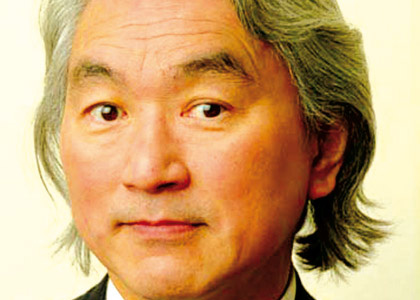
English
Japanese
Environment
Future
Science
Michio Kaku is one of the most widely recognised figures in science in the world today. His notable work is primarily in two areas: Einstein’s unified field theory, which Kaku is attempting to complete. The other, predicting trends affecting business, health, finance, and our way of life, based on the latest research in science.
Kaku holds the Henry Semat Chair in Theoretical Physics at the City University of New York. He received his Ph.D. in physics from the University of California at Berkeley, and has been a professor at CUNY for almost 30 years, having also taught at Harvard and Princeton. His goal is to complete Einstein’s dream of a “theory of everything”, to derive an equation, perhaps no more than one inch long, which will summarise all the physical laws of the universe. He is the co-founder of string theory, which is the leading candidate today for the theory of everything.
Kaku is the author of several international best-sellers, and is regularly called upon to write for major publications such as Time, Wall Street Journal, Discover Magazine, New Scientist Magazine, Astronomy and Wired.
His most recent book, The Future of the Mind, details the stunning breakthroughs being made in neuroscience which are finally beginning to unravel the mysteries of the most complex object in the known universe – the human brain. Recent scientific advances in brain-machine interface have made possible a form of telepathy, telekinesis, recording and uploading memories, and even photographing thoughts.
In 2009, Kaku hosted a 12 part science television series based on his best-seller, Physics of the Impossible. He is also the public face of the Science Channel and regularly appears on Fox News. His book, Physics of the Future, became the basis of a 6 hour TV special on the Science Channel called Futurescape. Kaku also hosts his own national weekly radio program, Science Fantastic, which airs in 130 cities in the US.

Einstein believed that free will was just an illusion, and that awareness of this lack kept him from taking himself and others too seriously. But Einstein was plain wrong, says Dr. Kaku.